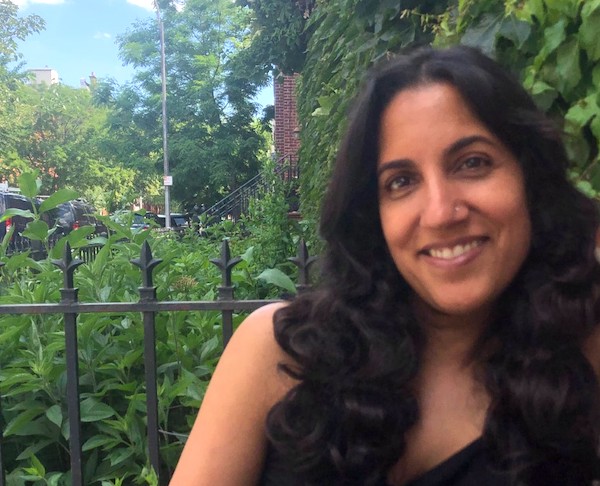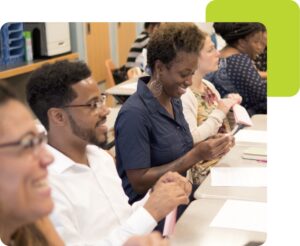Meeta: Defining the KIPP Experience

What KIPP is doing that's unique is that we're looking at what opportunities we're providing to students to show SEL skills. It's not really for us to teach kids these skills; the students already know them and use them. It's about embedding the opportunities to cultivate them in everyday opportunities in our interactions with students, including our lesson plans.
Meeta Gandhi, KIPP NYC Co-Director of Social Work
When Meeta was the Director of Childrens’ Services at the Visiting Nurse Service of New York (VNSNY), she co-piloted the first mobile crisis team, which aimed to decrease the number of Bronx children that were sent to the hospital from home or school for behavioral reasons. Her team’s results and findings were stark: 176 out of 177 children that schools called her team about didn’t ultimately require hospitalization. Her team also found that nearly three-quarters of these children reported being hungry. Based on the data, Meeta realized that there was a sizable gap between what school systems could provide and what the students actually need. Working more directly with schools to proactively support children and their behavioral challenges was one way to address this gap.
Meeta transitioned from VNSNY to KIPP seven years ago as a Clinical Supervisor, interested in schools’ missions to support students by strengthening their environments and alleviating behavioral issues before psychotherapy is turned to for treatment. She encourages social workers and school leaders to take a strengths-based approach and to promote resilience by supporting students with tools to solve issues before they escalate. One way this is accomplished is through social-emotional learning (SEL), which helps kids create strategies for building relationships, developing self-awareness, and navigating conflicts. Meeta describes the SEL work this way:
“What KIPP is doing that’s unique is that we’re looking at what opportunities we’re providing to students to show SEL skills. It’s not really for us to teach kids these skills; the students already know them and use them. It’s about embedding the opportunities to cultivate them in everyday opportunities in our interactions with students, including our lesson plans.”
In response to the COVID pandemic, KIPP NYC’s social workers have enhanced and adjusted the direct support and resources they provide to students and families. For example, schools performed wellness checks to make sure families had everything they needed and learn what the school could give. There are also regular meetings between the social workers and the school leadership team to talk about where students are struggling and how to help. Meeta discussed their approach:
“There were a lot of things happening to address social-emotional needs. We felt that providing grief counseling supports and resources to all social workers was really important. We put supports in place if families needed referrals. We were making sure that supports were in place for adult wellness as well. We have a partnership with Headway and Ayana [for counseling]. We had the Family Assistance Fund thanks to our donors. We tried to remove practical barriers to families so they could be in the business of taking care of each other and sending the kids to school.”
Meeta is also leading the “KIPP X” (aka the KIPP Experience) project. This work is born out of KIPP NYC’s commitment to being an anti-racist organization. A group of educators from across the region has been meeting with our school communities and stakeholders to gather input on the KIPP NYC student experience. Their feedback has generated six “graduate aims”, or in other words, the learning and life outcomes our students should be equipped with when they complete our high school program. Here’s how Meeta describes the KIPP X work:
“The process we should use to arrive [at graduate aims] should be specific to the need of our community. We took all of the responses from the 120 interviews of staff, students, families, alumni. Some of the info we got was nuanced and complex. [The graduate aims] touch everything in how we approach the work in our schools. For example, are we creating spaces for students to bring in all aspects of their identity, including their racial identity? Are we consciously creating a sense of belonging?”
When asked about what makes KIPP’s student support unique, Meeta recognized the social workers’ unparalleled attentiveness, responsiveness, and professionalism, and how this forms an amazing baseline for the relationships that our staff have with students. During the challenges of the past year and a half, so much of their work is grounded in this strong value of relationships and connections, or what we call “team and family.”

